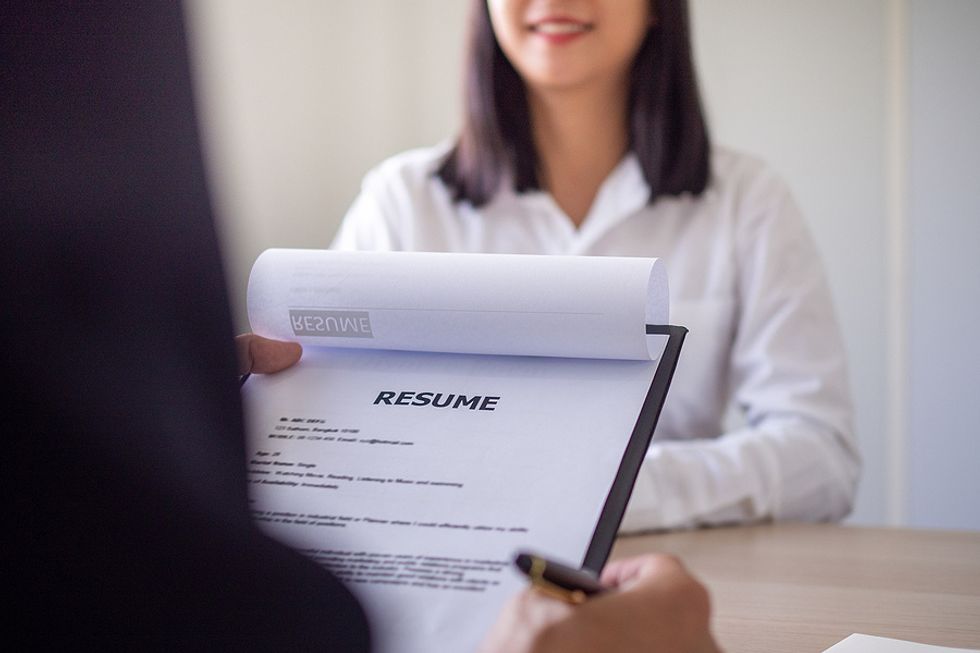3 Job Search Tips For New Grads

New grads with limited work experience are some of my favorite people to coach. And here’s why…
You have no bad habits yet. You have no preconceived notions. You don’t have a long list of demands that you want from a job. If anything, you’re just trying to figure out what kind of work would work for you.
Does that sound familiar?
This is why I love working with new grads. And if you’re a new grad looking for your first job out of college, these are the best job search tips I give all my clients who are in the same boat as you…
The Best Job Search Tips For Recent College Grads
@j.t.odonnell Replying to @swoopchirp New Grads Job Search Tips! ððâ¤ï¸ if you are a new grad then you have a competitive advantage in that you have no bad habits. however at the same time you haven’t been taught how to position yourself with employers. you need to leverage your intrinsic motivation. that is what will get you up every day to go do the job. the best thing to do is to identify companies where you feel a deep connection to the work that they do and then you want to leverage your unique skill sets to match them to jobs there. companies love hiring people that they can mold into high performing employees. that’s one of the advantages of hiring a new grad. so you want to make the most of that by being able to Showcase how your personality and your workplace personas will be a great fit for their organization. the first place to start is to take the two free quizzes linked in my bio and then if you want help decoding the results I’ve got an awesome new tiktok series here that you can purchase where you can listen to me explain the results. but most importantly if you’d like to get some career coaching to help you with all of this I hope you’ll head over to workitdaily.com where we help new grads all the time just like you. we’ve got a great 7 Day free trial! #newgrad #collegegrad #collegegraduate #newgradjobs #howto #jobsearch #howtofindajob #findmeajob #jobsearchtips #jobsearch #jobsearching #jobsearchhelp #careeradvice #careercoach #careercoachontiktok #careerhelp #careerquiz #careerdecoder #workplacepersonas #personalityquiz #communicationstyles ⬠original sound – J.T. O’Donnell
1. Understand Your Unique Combination of Professional Strengths (Communication Style & Workplace Persona)
My first piece of advice for you is to understand two major components of your professional strengths. The first is your communication style (how you interact with others in the workplace). This plays a huge role in the type of jobs you’d be a good fit for. For example, if you’re a contemplator, you’re more introverted. You’re not going to want a job that requires you to be really extroverted with a lot of people. Whereas if you were an energizer, you would actually feed off the energy of others.
The second thing you need to learn about yourself is your workplace personas. This is how you create value on the job. Companies pay you to create value, right? You need to save or make them enough money to justify the cost of hiring you. This is something they never teach us in school. So, there are eight workplace personas, and you should find out what your top three workplace personas are. Are you a builder, mentor, super connector, educator, visionary, optimizer, or researcher?
Take my free quizzes below to discover your unique combination of professional strengths:
- Communication Style Quiz (ISAT)
- Workplace Personas Quiz (Career Decoder)
2. Use The Information In Step 1 to Create an Interview Bucket List
Once you know your communication style and top workplace personas, you can weed out a whole bunch of jobs that aren’t a fit for you and dial in on the kinds of roles that would be a fit for you. Then, we can teach you how to take that information and use it to reach out to employers and introduce yourself to them. This is a technique called an interview bucket list where you come up with a list of companies that you feel connected to. It’s called intrinsic motivation. That’s the fancy term. And when you are a recent grad, that’s all you got, my friend.
As a new grad, you don’t have a lot of experience to share. But companies love recent grads who have an intrinsic motivation to work for them and who understand their personality (their communication style and workplace personas) and how they’ll create value for them. That shows a self-aware recent grad, and that’s the kind they love to hire and mold, which will help catapult your career.
It’s a really great time for you to be looking for work if you understand your unique combination of professional strengths and how to create an interview bucket list.
If you would like us to coach you on all of the things I’ve discussed, sign up for Work It DAILY’s seven-day free trial of our career coaching platform that is literally going to teach you everything you need to know to land your first dream job.
Good luck, and go get ’em!





































